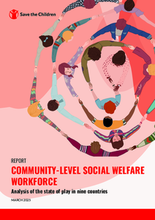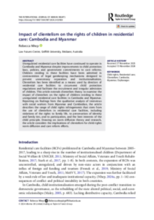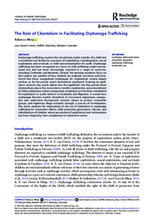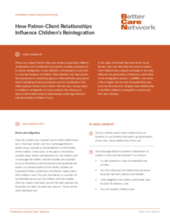Displaying 1 - 10 of 58
This report, based on a study across nine countries, examines how to strengthen the community-level social welfare workforce (CLSWW) as a vital but under-resourced part of national child protection systems. It calls for context-specific strategies that clearly define roles and competencies, build capacity, and align with local norms, mechanisms, and resources to enhance child protection outcomes.
The article explores the implications of the use of clientelism in orphanage trafficking for prevention efforts, child protection governance reforms, and rehabilitation of children whose perception of exploitation and victimization has been shaped by their socialization to clientelism norms
Ever since she witnessed a Myanmar military air strike on her school in February, kindergarten teacher Mi Hser has been haunted by the memory.
In this video, Kinnected Myanmar Senior Social Worker, Htoo Say, describes the nature of patron-client relationships and gives examples of how they influence the participation of directors and families in the reintegration process. In addition, she shares critical insights into how the Kinnected Myanmar social workers learnt to navigate these relationships to facilitate children’s reintegration and promote their best interests.
Join us on July 13 for a free webinar to launch and discuss a landmark collaborative report – Insights Into the World of Privatized Faith-Based Residential Care Facilities in Myanmar. Learn about the report’s findings and take part in a Q&A with the report’s lead researcher and other key contributors.
Three months since his last update to the UN rights forum in Geneva, Special Rapporteur on the situation of human rights in Myanmar, Thomas Andrews, said that he’d met youngsters who’d fled the country after suffering “irreparable harm”.
Myanmar’s military junta is responsible for shocking violence against children caught up in the bloody aftermath of last February’s coup, a top independent Human Rights Council-appointed investigator said on Wednesday.
This briefing paper draws on data and findings from the Insights into the World of Privatized Faith-Based Residential Care Facilities in Myanmar research report.





